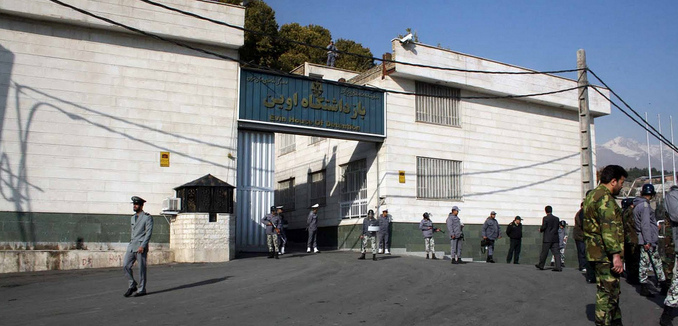The Iranian Revolutionary Guard Corps (IRGC), recently designated in its entirety as a terrorist organization by the United States Treasury Department, has arrested at least 30 dual nationals over the past two years, twice as many as earlier reported.
According to accounts of lawyers, diplomats and relatives, most individuals are being held on espionage charges. The number marks a sharp rise since 2015, when the nuclear accord signed between the Islamic Republic and world powers raised hopes that moderate forces inside Iran would be empowered by the deal.
The nature of the arrests also point to a new trend with 19 out of 30 prisoners having citizenship in Europe, whilst previously most of the detainees were Iranian Americans, Reuters reported in an exclusive story published on Thursday.
In all cases, the sources insist that the detainees had not carried out any espionage and were arrested only because of their second citizenship, which Iran uses as bargaining chips in international relations. In 2016, the Islamic Republic released five U.S. citizens in exchange for $1.7 billion in cash and the release by the U.S. of Iranian nationals convicted for proliferation offenses as the nuclear deal was implemented.
Western governments generally try to keep details of arbitrary arrests under wraps, as they see quiet diplomacy as the best strategy to secure their nationals’ release. However, relatives often seek the help of human rights organizations and international media, frustrated by a lack of information and little progress made by government agencies.
Last week, British Foreign Secretary Boris Johnson came under fire, after he made inaccurate comments about British-Iranian prisoner Nazanin Zaghari-Ratcliffe, which apparently led to her being summoned to an unscheduled court hearing at which Johnson’s remarks were cited as proof that she had engaged in “propaganda against the regime.”
The Foreign Secretary had told a British Parliament committee that “when you look at what Nazanin Zaghari-Ratcliffe was doing, she was simply teaching people journalism as I understand it.” Her representatives, however, have always maintained she was simply visiting family in Iran.
Johnson was forced to backtrack Tuesday, saying that “the UK government has no doubt that she was on holiday in Iran” and that his comments “could have been clearer.”
Zaghari-Ratcliffe, an aid worker employed by the Thomson Reuters Foundation, was detained at Tehran’s airport in April 2016, separated from her child, and charged with the “design and implementation of cyber and media projects to cause the soft toppling of the Islamic Republic.” She was later sentenced to five years in prison for attempting to overthrow the government.
Iran does not recognize dual citizenship and dual nationals like Zaghari-Ratcliffe are denied access to the embassies of their second nationality. In July 2016, the United Kingdom upgraded its warning to citizens traveling to Iran that they face a risk of being “arbitrarily detained.”
[Photo: سبزفوتو Iran / Flickr]




